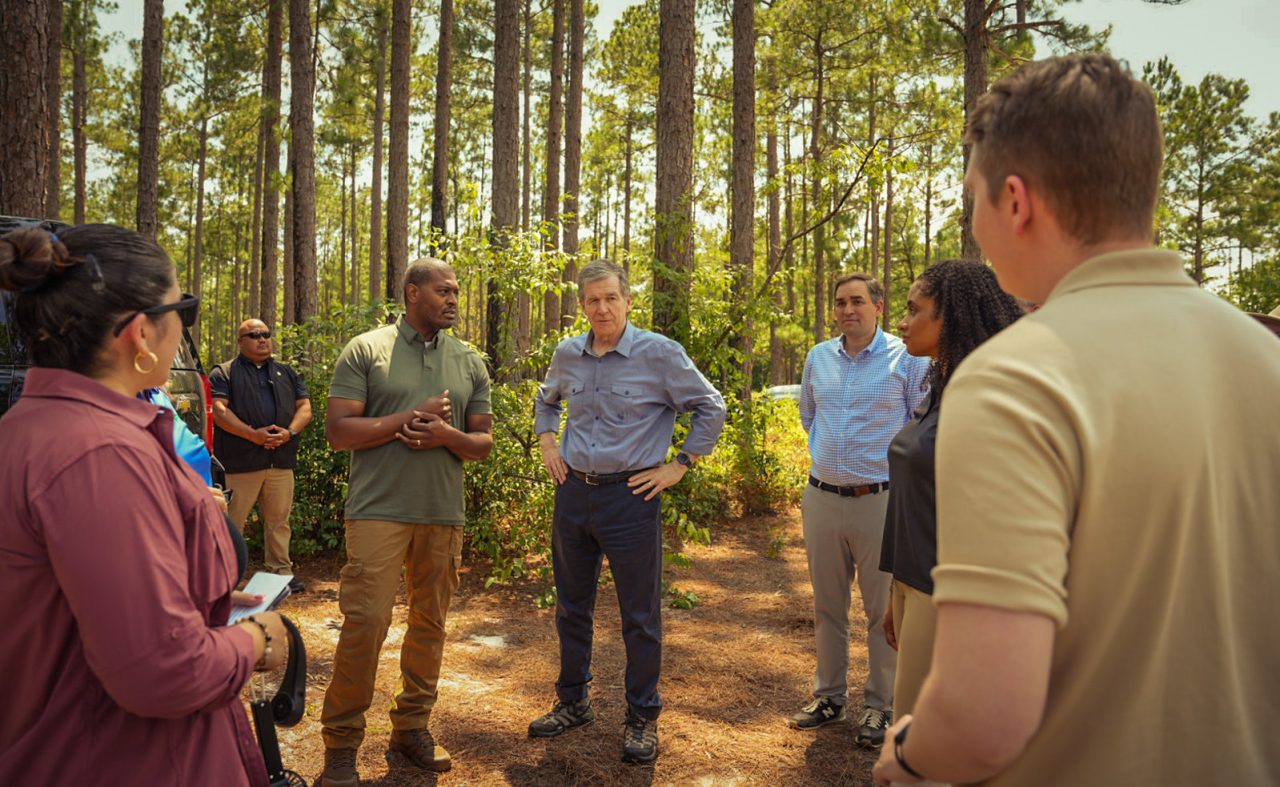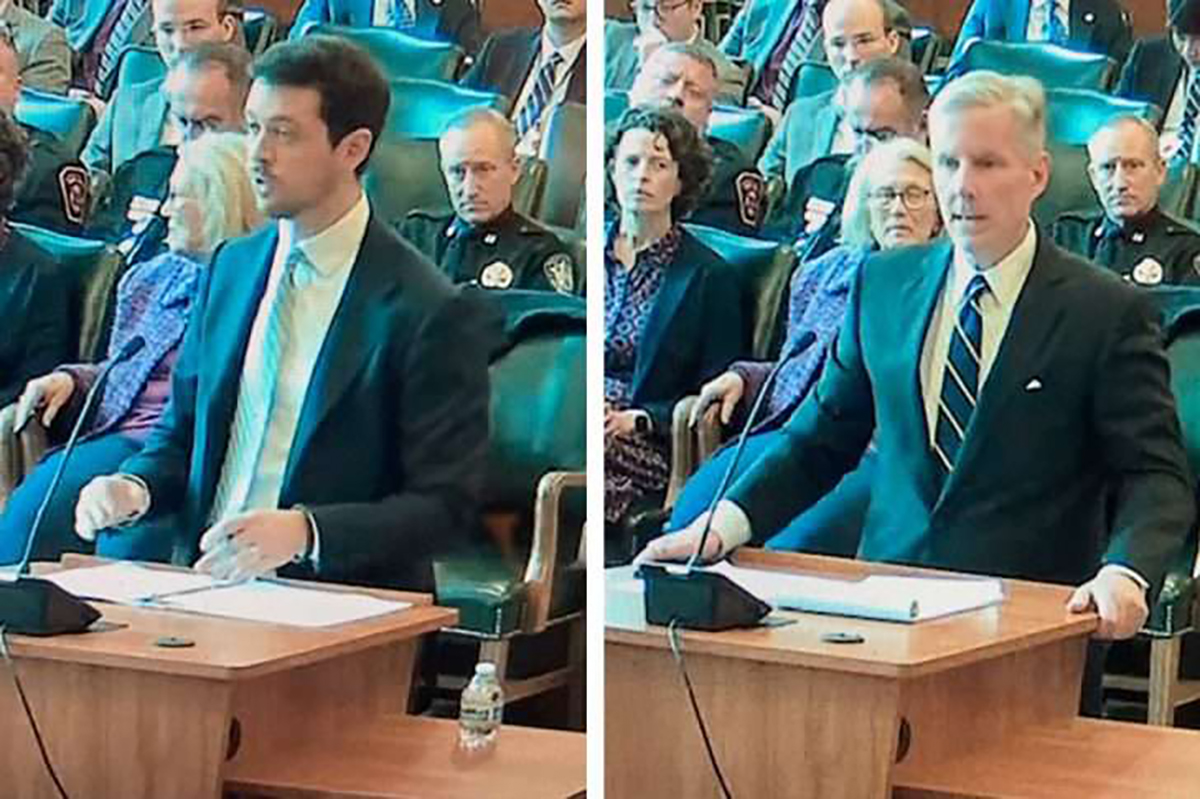
SUPPLY – Tens of thousands of acres of wetlands and hundreds of acres of salt marshes will be restored and protected in the state with funding from a multimillion-dollar federal grant recently awarded to a coalition of states, including North Carolina.
The $421 million Climate Pollution Reduction Grants program, funded by the Environmental Protection Agency, will also result in the addition of 3,000 acres to North Carolina’s state parks system, reforestation of 55,000 acres, the initiation of an urban tree planting program, and “so much more,” Gov. Roy Cooper said.
Supporter Spotlight
Against the backdrop and under the canopy of towering longleaf pines rising from sandy peat soil and wiregrass covering the forest bed of the Green Swamp Preserve in Brunswick County, Cooper, EPA Administrator Michael Regan, U.S. Rep. Wiley Nickel, and others on a balmy Tuesday afternoon touted how the funding will be used to reduce carbon emissions, boost the economy, and help communities become more resilient to natural hazards.
Related: EPA awards $421 million to multistate-nonprofit coalition
“You think about what this money will do — fight climate change to protect communities from flooding, put money in the pockets of North Carolina families to boost our tourism industry,” Cooper said. “We know that nature itself can play a significant role in carbon reduction. Renewable energy and the power sector and (electric vehicles) on the road get most of the headlines and attention when we’re talking about carbon reduction and it’s important for us to keep doing those things. But, it’s estimated that this grant will have the equivalent carbon reduction of taking six million gas powered cars off the road.”
The EPA announced last week that the Atlantic Conservation Coalition, which includes North Carolina, South Carolina, Virginia, Maryland and The Nature Conservancy, are to receive the funds that will be used to work in conjunction with nonprofit organizations for conservation and restoration projects.
In all, there are 21 proposed projects that are estimated to reduce greenhouse gas emissions by 28 million metric tons by 2050.
Supporter Spotlight
“The peatlands here in the Green Swamp Preserve have existed for millennia, remaining natural and undrained the way a peatland is supposed to be,” Regan said. “Peatlands like this cover around one-third of the Earth’s surface and store twice as much carbon as all of the world’s forests. Because these swamps contain vast amounts of carbon, when they’re drained or burned, they release huge quantities of climate pollution and can no longer serve as natural buffers for flooding and wildfires, not only threatening biological diversity and ecological health, but also threatening the health of the surrounding community.”
The Biden administration has made the largest investment ever to tackle climate change, he said, including initiating what he referred to as the most innovative and exciting programs – the Climate Pollution Reduction Grants program.
The program aims to help implement community-driven solutions to reduce air pollution, advance environmental justice and help accelerate the country’s transition to clean energy.
North Carolina’s Department of Natural and Cultural Resources applied for the grant in April as part of the multi-state coalition, one that is “focused on the protection and restoration of over 200,000 acres of coastal habitat, forest and farmland,” Regan said.
Department of Cultural and Natural Resources Secretary Reid Wilson focused on two major benefits of the grant, the first of which is conserving and restoring degraded streams, forests and wetlands that will pull carbon out of the sky and reduce the amount of greenhouse gas emissions in the air.
“And then, second, these preserved and restored natural lands and waterways will make our state more resilient to the increasingly frequent and intense storms and other devastating effects from climate change,” he said. “Our department is really excited about this.”
Regan later said that all four states have signed a memorandum of agreement, well before the deadline set by the EPA.
Congressman Nickels called the grant an “incredible investment.”
“By making these important investments we’re ensuring a sustainable future, not only for our environment, but for our economy as well,” he said. “It’s essential that we maintain this for generations to come.”







